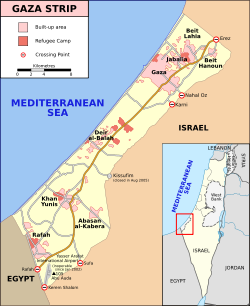Taking sides between two violent factions will not end a conflict. Working for reconciliation is the only way. The Arab Israeli conflict cannot be seen in terms of goodies and baddies; here we have two peoples, deeply traumatized by their history, locking one another in a hopeless escalation of violence.
Why should the Gazans refuse to agree to a ceasefire? If Israel stops sending missiles it would be good for the population. Right? Well, perhaps for some strategists in Gaza, wrong. Is it not possible that the Hamas tactic is to force Israel to accept the Palestinians independence by way of the action of international organizations? Whether this is deliberate or not, it must be clear to them that Israel was created on the back of the Holocaust. So, some Palestinians may be betting on their own Holocaust in order to get their state. And the reaction of the international community seems to confirm that the death of civilians in Gaza is eliciting much more sympathy than the risk to (better protected) Israelis from Hamas’ missiles. In fact it seems that every child killed in Gaza is a nail in the coffin of the Israeli project. So, it is highly unlikely that Gaza will stop the attack on Israel because it ensures that Israel will continue raining bombs on Gaza. Unless, of course, Hamas obtains some outstanding concessions that make them look like they won the battle, to go away and prepare for the next one.
The international mood is also changing. European countries’ guilt at refusing to take Jewish refugees during Hitler’s persecution is dwindling as a new generation that did not have firsthand experience of the war is coming to power. And the young, all over the world, including young Jews, are filling the social media with support for the Palestinian cause.
If someone intelligent in Israel realized this they could stop the attacks, help Gaza build infrastructure and employment and negotiate peace. But the present government was elected on a “strong arm” bill, and if it adopted a nonviolent response it would fall apart immediately. This is what I call “being played like a piano”, locked as it is by both Hamas and its own rhetoric.
A huge problem is that the voices of peace and nonviolence, on both sides of the conflict, are not being given space in the international media. Nobody knows they are there, working from within, together, showing that the two communities can live side by side. Only the violence gets column inches, only violence makes you visible. If they could be heard their proposals would surprise the world because we have grown accustomed to the idea that there is no possible solution to this conflict. There is, and these courageous people need our support.










